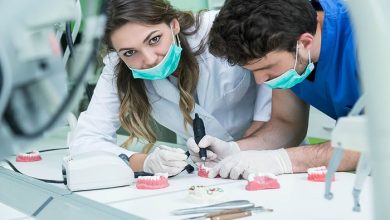Antibody vs. Antigen Testing for COVID-19

Under the COVID-19 pandemic, testing became a critical part of detecting the disease. Besides the golden standard PCR tests to detect viral RNA, many faster alternatives have been developed.
We are referring to the diagnostic tests: antibody and antigen testing.
In this article, we will introduce these two test types talking about their main differences. Let`s take a look.
Antigen Test
Diagnostic tests show whether you have an active COVID-19 infection and need to take further steps to quarantine. Both Molecular and Antigen tests are types of diagnostic tests that can detect the active COVID-19 virus in your body. Samples for diagnostic tests are typically collected with a nasal or throat swab or saliva collected by spitting into a tube.
Similar to RT-PCR, the detection of antigen indicates the active infection. In areas with limited resources, the antigen can aid in the diagnosis/screening of COVID-19 infected patients.
The best detection window for antigen test is 3 days before symptoms onset and 7 days after symptoms. The viral load will decrease along with the disease progress, and the detection rate for antigen will go down.
Antibody Test
Antibody tests show whether antibodies in your immune system are produced in response to SARS-CoV-2, the virus that causes COVID-19. Antibodies can take one to two weeks to develop after exposure to virus and may stay in your blood for several weeks. Therefore, antibody test is usually not applied solely for diagnosis. Samples for antibody tests are typically blood from a finger stick or blood drawn by your doctor.
What is the difference between antigen and antibody?
Antigens are molecules capable of stimulating an immune response. Each antigen has distinct surface features, or epitopes, resulting in specific responses. Antibodies are Y-shaped proteins produced by B cells of the immune system in response to exposure to antigens. Each antibody contains a paratope recognizing a specific epitope on an antigen, acting like one key pair one lock. This mechanism can help eliminate antigens from the body, either by direct neutralization or by ‘tagging’ for other arms of the immune system.
How do antigen tests and antibody tests take the sample?
- Antigen test: Using nasal, saliva or nasopharyngeal swab for most of the tests.
- Antibody test: Using blood from a fingerstick or vein for most of the tests
How long it takes to get results for both tests?
- Antigen test: It depends on the test. Most tests can get results in 15minutes.
- Antibody test: Also 15 minutes
Is another test needed after antigen and antibody test?
- Antigen test: Antigen test can detected early Covid-19 infection, however, false positive can happen, so positive results may need to be confirmed with a molecular test.
- Antibody test: Always a second antibody test will be required for an accurate result.
What will the tests show us?
- Antigen Test: Diagnose active COVID-19 infection.
Antibody Test: This first shows if you have been infected by the virus that causes COVID-19 in the past. Secondly, test result can be positive for vaccinated people.
What can the tests not do?
- Antigen Test: It can detect early COVID-19 infection but accuracy is lower than PCR. If your result of the antigen test is positive, an extra molecular test will be required for accurate diagnosis.
- Antibody Test: It can detect middle and late infection of COVID-19, but an extra PCR test will be required for confirming.

Conclusion
During the test process, it is critical to be efficient and accurate. For some time, we have heard about Wondfo Biotech tests. The company offers different kinds of antigen tests and antibody tests which all have been validated by the Pasteur Institute. The official validation report showed that Wondfo antigen tests achieve 93.7% sensitivity.
To have more information about different tests, Check the Wondfo website.





